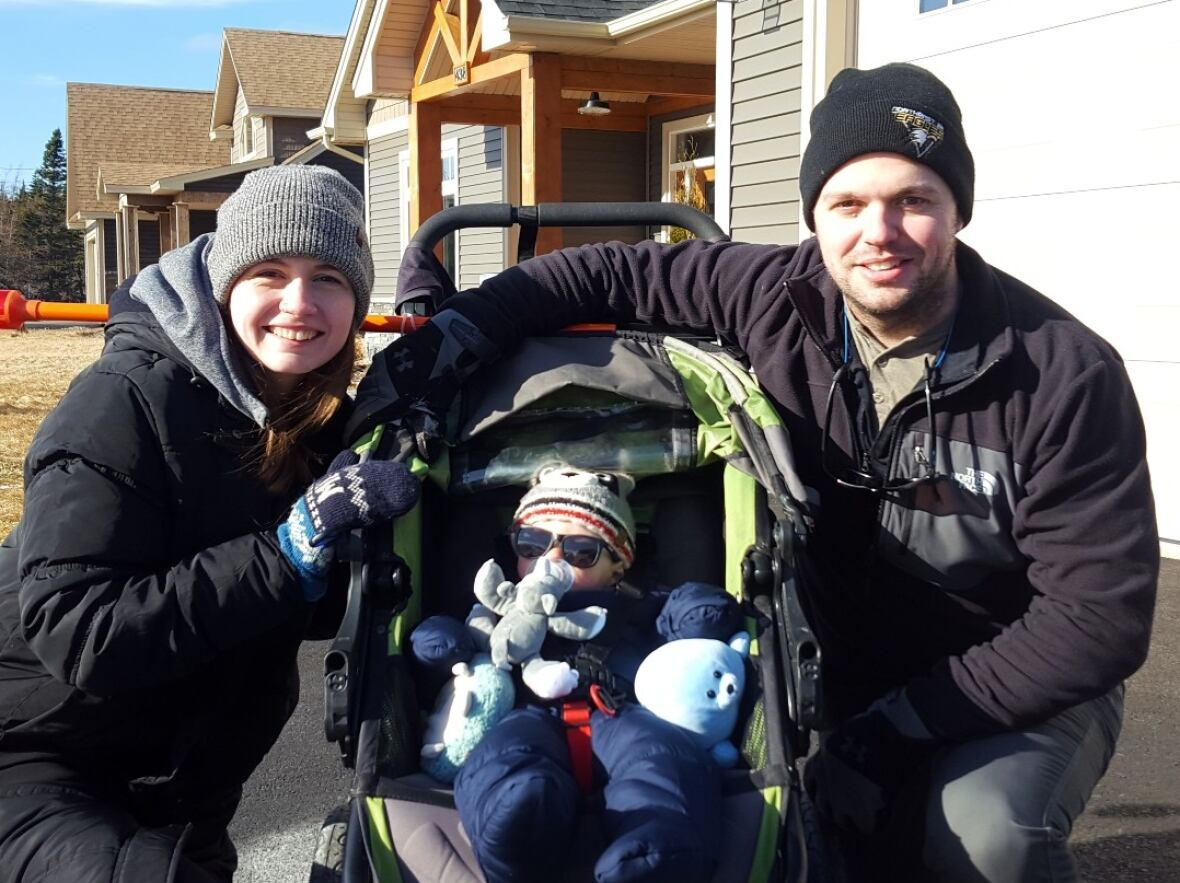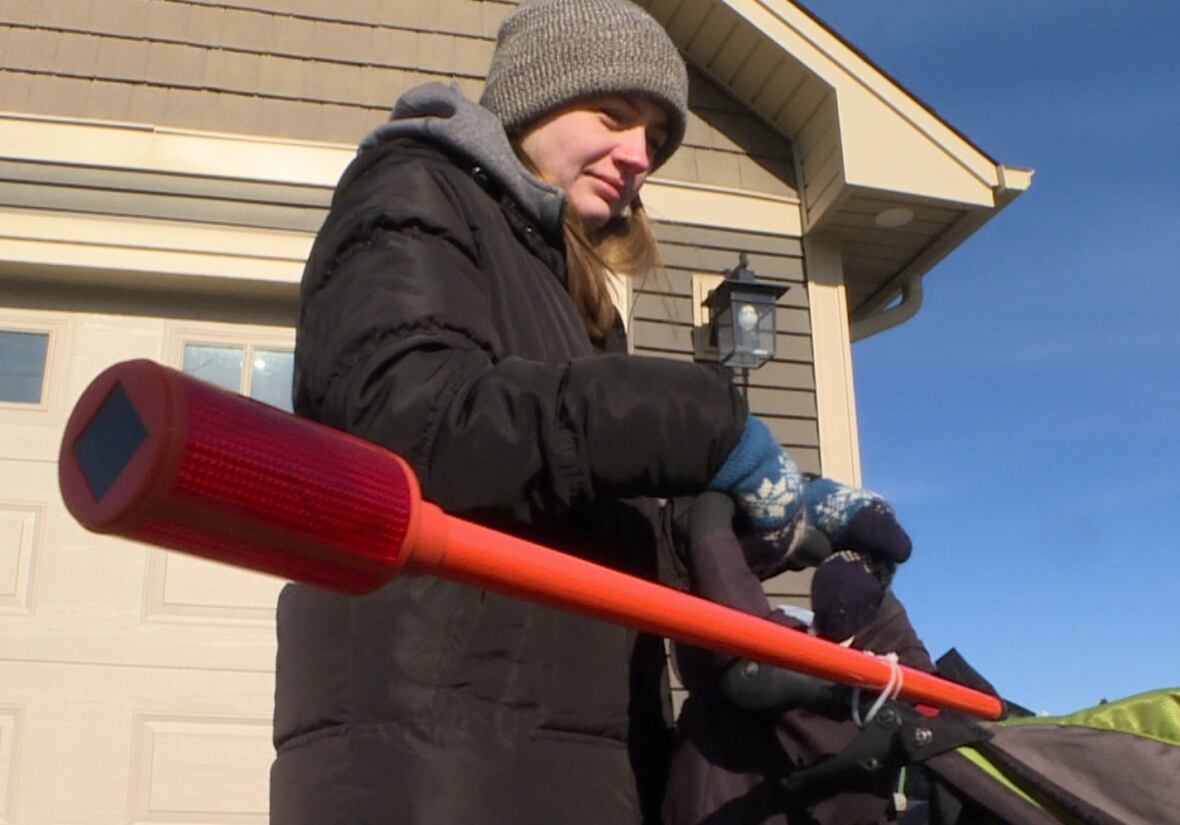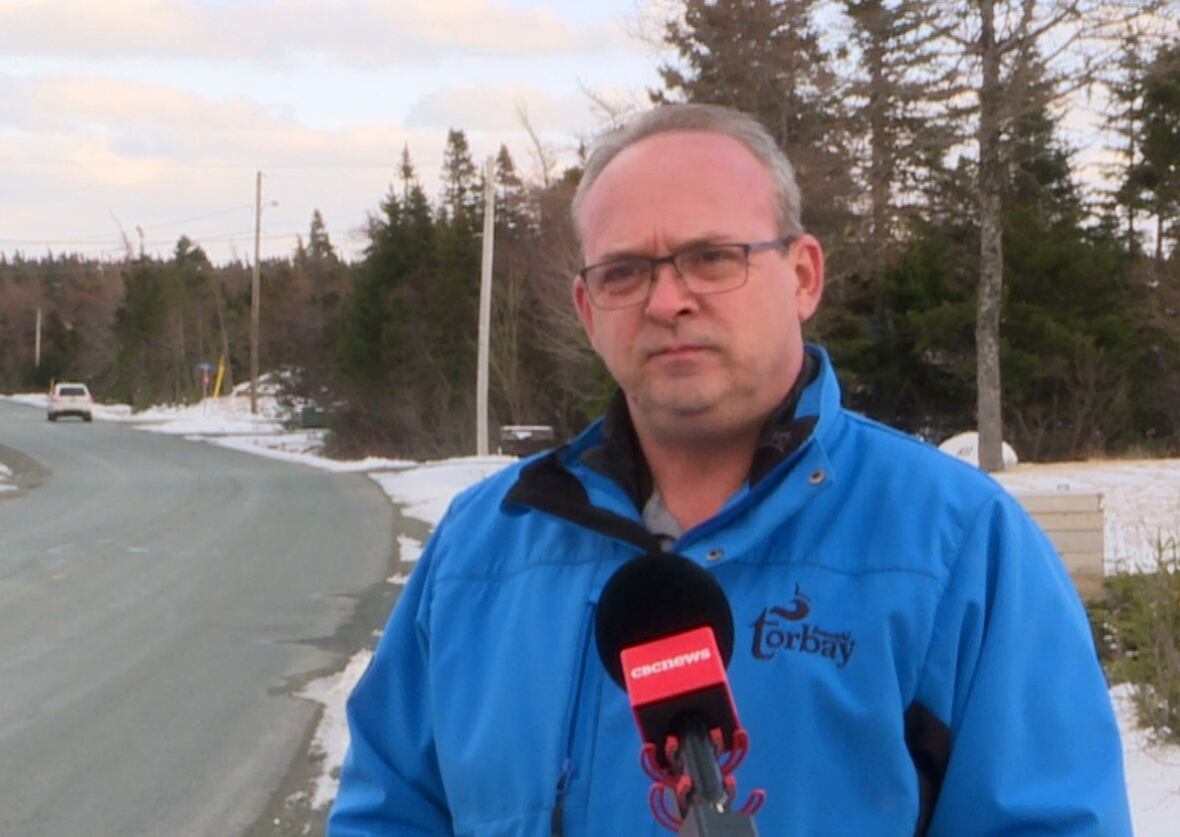'If something happens it's going to be too late': Bauline Line couple wants action against speeding
Torbay mayor says his hands are tied because it's a provincial road

A broken pacifier is a reminder for Bill Dawe and Kate Barker of what could have turned a family walk into a tragedy.
The couple and their nine-month-old son live on Bauline Line in Torbay, one of the main roads through town.
Speeding traffic is part of their everyday lives.
But one incident in early January was particularly frightening, when the family had a close call with a passing car.
"The car was coming towards us, did not even make room for us and sped past," said Barker.
"We actually had to jump into the ditch because they were pretty much off the road. And if we didn't move, we would have been hit."
The only way they saw to protect themselves was throwing their son's pacifier on the road to try to force the car to swerve.
The situation makes Barker feel scared for her family's safety, and she's not alone.
Another family in the neighbourhood has had enough.
"They had a daughter around two years old and they figured it was too unsafe and they just packed up and moved into a subdivision," said Dawe.
Torbay Mayor Craig Scott understands the worry.
"Whatever I can do or our council can do to try and improve the situation, we're going to try and do it," he said.
But the street is technically a highway and therefore falls under provincial jurisdiction, Scott said, so it's not as easy as simply putting up speed bumps or chicanes.
"Traffic-calming measures are not allowed on these particular roads," he said.

His response isn't good enough for Dawe and Barker, who say their complaints to the town are reflected in a 180-email thread.
One of their requests is a reduction of the speed limit.
Despite being a residential zone, the section of the street where Dawe, Parker and Scott live has a speed limit of 60 km/h, not 50 like other sections of the road.
Scott says he doesn't know why the speed limit is inconsistent over the length of Bauline Line but says more houses and subdivisions were added to the area over the last decade.
"I don't know that the department has actually kept up with the changing nature of this road, though, because it was just usually basically a thoroughfare to get from Torbay to Bauline," said Scott.
"We have a recreation area in the road here … and in particular with the pandemic, since that came in, a lot more people have been getting out walking."
Another point of contention is the shoulders on the road, which both Scott and Dawe say got narrower after the road was repaved.
In response to residents' concerns, Scott said the town asked the provincial Transportation Department to review shoulders and speed limits and to clarify the rules for installing speed-calming measures on provincial roads within towns.

Transportation and Infrastructure Minister Elvis Loveless wouldn't do an interview.
In an emailed statement to CBC News, the department said it will speak to the town about its concerns but that "speed humps/cushions installations are directed towards neighbourhood traffic calming and not directly intended for thoroughfares such as Bauline Line."
Beyond speed limit changes, though, Scott says enforcement is key to getting a handle on a problem that he believes lies with human behaviour.
"It doesn't matter, I guess, if the speed limit is 70 or 100 or 20; if people are going to speed, they're going to speed," he said.
Scott said the RNC supports the town in its efforts to reduce speeding.
But he knows the Northeast Avalon Peninsula is a big area to patrol and resources aren't always available.

According to the RNC, the number of tickets issued on Bauline Line went up from two in 2019 to 19 in 2021.
The number of traffic complaints also rose, from seven in 2019 to 21 in 2021.
Dawe and Barker still hope for solutions and call moving a last resort.
"I built the house to stay in it for the rest of my life. But this is something that could change that," said Dawe.
For now, the incident in January has prompted the couple to install a reflective marker on their son's stroller that can swing out to try to keep cars at a distance.
They also want people to understand the possible consequences of their actions.
"It's not worth the speeding," said Dawe.
"If something happens it's going to be too late. And it's going to be a difficult thing for both sides to have to live with."
Read more from CBC Newfoundland and Labrador

